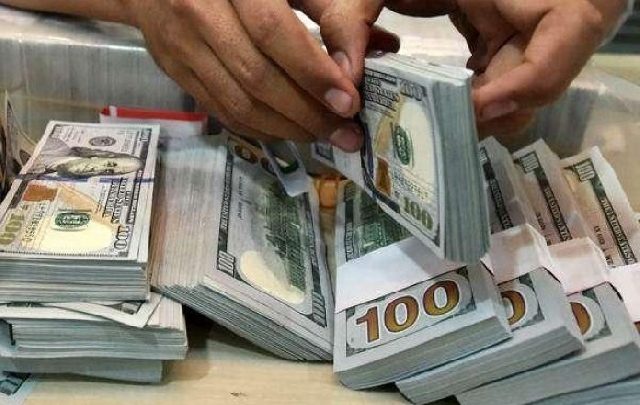The Citizen Watch Ghana, a think tank, is urging the government to set aside part of the country’s reserves as a social compensation for its citizenry in response to a possible lockdown over the COVID-19 pandemic.
Ghana’s gross international reserve is estimated to be hovering around $10 billion, translating into more than four months of import of goods and services.
“We have an epidemic in our country which is fast spreading in the country. There is a greater possibility of a possible lockdown. So our proposition to the government is that let us use $1 billion of our reserves to develop a social compensation plan for the country,” said a statement signed by Francis Agbenyegah, head of the think tank.
“If we are able to resolve the banking financial crisis with our taxpayers' money with an amount of GHS16 billion, why can’t we do same with our reserves in supporting the most affected groups such the teachers, ‘trotro’ drivers, artisans among others?” the think tank quizzed in the statement.
The think tank estimates a target group of about nine million people excluding those already enjoying from corporate exemption taxes and interest rates and what have you.
“Assuming the government doles out between GHS300 and GHS500 for people who are venerable it would go a long way to support their economic activity should there be a lockdown for at least one month,” the statement said.
According to Citizen Watch, “we can use an electronic device to track all these people through the use of the digital address system for their compensation adding that we can’t sit down to watch our people suffer during this hard times and allow anything to happen when we can use $1 billion of our reserves as a relief package to support its citizenry.”
The negative impact of COVID-19 on exports, imports, taxes, and foreign exchange receipts will culminate in a slowdown in economic activity.
GDP growth is forecasted to decline to 5% in a baseline scenario. In the worst-case scenario, GDP growth estimates could be halved to about 2.5% in 2020.
These assessments are preliminary as the situation is very fluid and the degree of uncertainty concerning the outbreak is very high.
This means that there is a likelihood that these assessments could change rapidly.
According to Citizen Watch, there is also a likelihood of export restrictions from advanced economies and other emerging market economies which could create supply chain shortages for Ghanaian businesses, with significant impact on imports of intermediate and capital goods, as well as consumption goods.
This is expected to negatively affect inputs in the domestic production channels with severe consequences for growth and tax revenues which could become more pronounced by the second or third quarter.
In addition, crude oil prices have declined sharply to historically low levels, and already creating negative shocks on exports, albeit with some offsetting effects from rising gold and cocoa prices.
Latest Stories
-
Parliament approves new GH¢1 fuel levy after minority walkout
3 hours -
Tesla executives questioned Musk after he denied killing $25,000 EV project, sources say
3 hours -
Oreo maker sues Aldi in US over ‘copycat’ packaging
4 hours -
US steel and aluminium tariffs doubled to 50%
4 hours -
Ghana’s legal education debate: Are we expecting too much too soon?
4 hours -
Alcaraz storms through to semi-final with Musetti
4 hours -
Black Queens wrap up Abidjan training tour with defeat to Côte d’Ivoire
4 hours -
Inzaghi leaves Inter Milan ‘by mutual agreement’
4 hours -
‘Man Utd didn’t need the money’ – Fernandes rejects Al-Hilal move
4 hours -
Cybercrime ringleader, 10 others remanded in custody
5 hours -
Gov’t to expand student loans to all tertiary institutions – Education Minister
5 hours -
WaterAid Ghana, Guinness Ghana commission water project in Upper West Region
5 hours -
Energy levy: ‘You can’t continue pouring water into a leaking bucket’ – COPEC warns
5 hours -
Rising Star: Yvonne Dadson’s groundbreaking research earns international recognition
5 hours -
Suicide bomber killed in Uganda on Christian holy day, army says
5 hours

